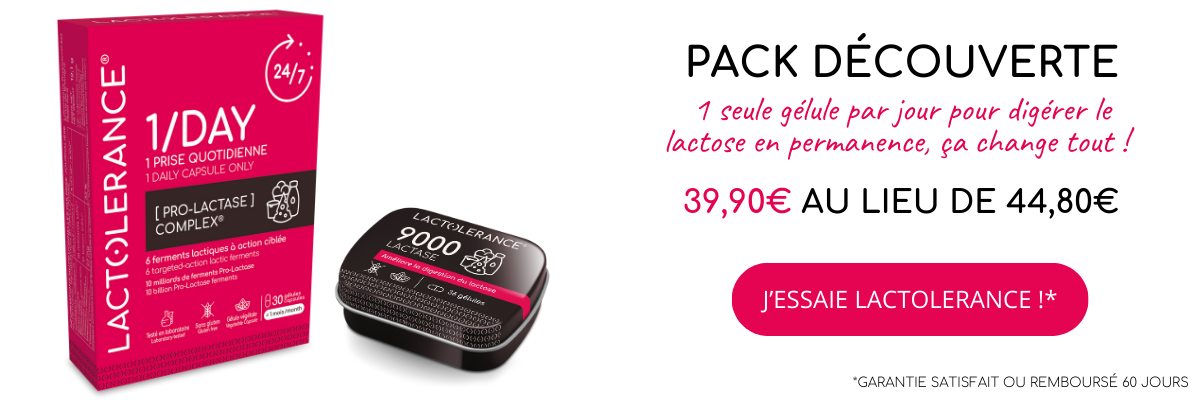
Also known as protein powder, whey is ideal for athletes who want to improve their sporting performance and build muscle mass. It is also ideal for people whose diet is insufficient to cover their daily protein requirements. However, whey is sometimes responsible for more or less uncomfortable digestion problems. We take a closer look at the composition of protein powder and the link between whey, digestion and lactose intolerance.
What is whey made of?
Whey is defined as a complete protein. In other words, it contains all the amino acids essential for the repair of muscle tissue in the human body. It is made from globular proteins extracted from whey, the liquid left over from the coagulation of cow's milk. The term 'whey protein' is actually a translation of 'lactoserum protein'.
Whey is therefore on the long list of products containing lactose. This means that consuming whey is likely to have a negative effect on the digestion of lactose intolerant people.
Is whey suitable for people with lactose intolerance?
The milk used to make whey undergoes a large number of filtrations. As a result, the protein powder contains a quantity of lactose which, while correctly assimilated by a large proportion of lactose intolerant people, nevertheless causes digestive problems in the case of severe intolerance. Everything also depends on the daily dose of whey ingested, which is determined in particular by individual nutritional requirements and physical goals.
If you experience bloating, flatulence, borborygma or other digestive problems after consuming whey, this may be a sign that you suffer from lactose intolerance. If you are used to diluting your protein powder in animal milk, try mixing it with water or plant milk to determine whether your digestive problems are linked solely to the whey or whether they are caused by the whey-dairy combination. Knowing your tolerance threshold, which a home avoidance test can help you to establish, will tell you whether or not whey has a place in your diet.
How can I replace whey if I have digestive problems?
There are now lactose-free whey products on the market. According to current regulations, whey can be labelled lactose-free when it contains less than 0.01g of lactose per 100g of finished product, which is well within the tolerance threshold of most people with lactose intolerance and certainly limits digestion problems for them.
Lactose-free whey is consumed in the same way as traditional protein powders, i.e. mixed with water or plant milk. At the same time, increasing your consumption of quality animal and/or vegetable proteins to a greater or lesser extent will naturally enable you to achieve your goals more quickly, as a supplement to or replacement for whey with or without lactose.

Hello, I'm Vincent
Like you, I'm lactose intolerantI know exactly what you're going through and the difficulties you encounter on a daily basis. For over 10 years, I've been helping our customers to use our dietary supplements and giving advice and tips on how to improve their digestive comfort. I'm also a keen cook and gourmet, so you'll find my favourite recipes for a lactose-free diet in this blog.
Lactose intolerance is not inevitable! With LACTOLERANCE you can digest with complete peace of mind






